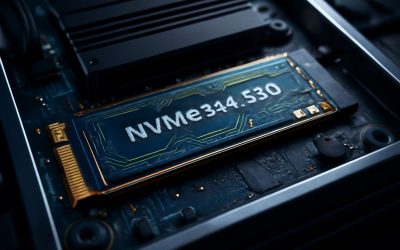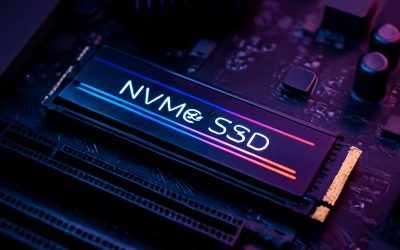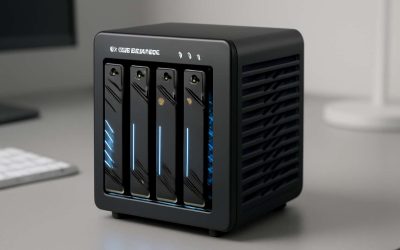
An SSD is a type of computer memory that stores data electronically instead of using magnetic media, such as hard disk drives (HDDs). Because the data is stored on flash memory chips, SSDs can read and write faster than HDDs.
SSDs are used in a wide range of computing devices, including personal computers, laptops, digital cameras, music players, tablets and smartphones. They also work with graphics cards to speed up gaming performance.
The most popular form of an SSD is a PCIe device, which can connect directly to the CPU via a USB port or through the motherboard. These drives come in a variety of sizes and are compatible with many different computer brands.
Some SSDs feature built-in thermal sensors, which tell the controller when a drive is too hot to operate safely. When this happens, the drive’s firmware will cap performance and slow transfer rates to prevent overheating.
Most SSDs have a limited lifespan, and it’s important to choose a model with a long warranty. The lifespan of an SSD is a function of its NAND flash cells and the type of use the storage will be exposed to.
A single-level cell (SLC) SSD, for instance, carries one bit per cell and is designed to last longer than a multi-level cell SSD with two bits in each cell. SLC-based SSDs are a good choice for large-scale, multi-server environments, because they have proven their reliability time and again.
If you want to boost the lifespan of your SSD, a smart approach is to make sure it’s being actively maintained. There are several ways to do this, including overprovisioning, wear leveling and garbage collection.
Another way to keep your SSD in good shape is by keeping it clean and free of viruses, spyware and other malware. You can also protect your SSD by using a password to secure the drive’s files.
Lastly, you can try to improve your SSD’s performance by updating its firmware. This will allow the SSD to run its essential maintenance processes more effectively.
You can also install software that helps your SSD optimize its performance. These include utilities like Acronis True Image or DiskClone, which can help you get the most out of your storage.
An SSD is a key component of most modern computer systems, and it’s essential for storing and loading data. It’s also used in mobile devices to increase their battery life and provide shock resistance.
The best SSDs are able to read and write very quickly, which means they can load an entire operating system or game more quickly than traditional HDDs can. This is a huge advantage when it comes to gaming, as games often need a lot of data to load.
If you’re building your own gaming PC, it’s a good idea to use an SSD. You’ll find that your game load times are significantly quicker with an SSD, and you’ll also experience less stuttering.
If you’re unsure which SSD is right for your PC, Crucial has a handy advisor tool and system scanner that will help you find the ideal solution. It will also give you a good idea of how much space you’ll need and the performance you can expect.



0 Comments